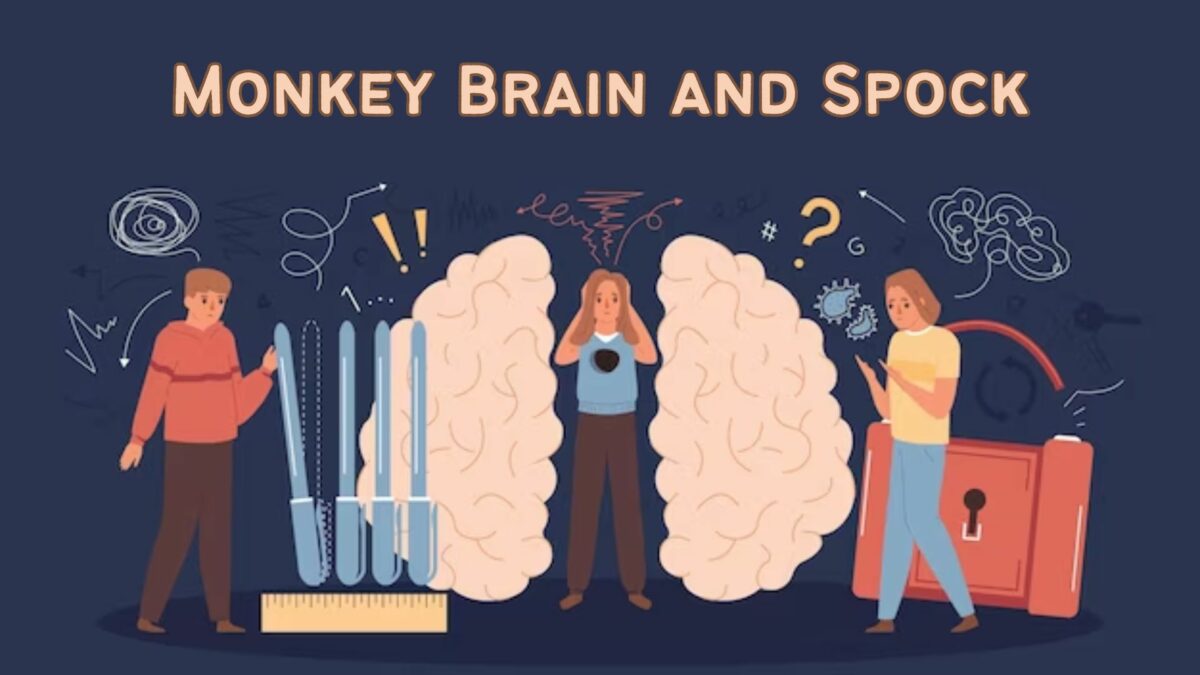“It is curious how often you humans manage to obtain that which you do not want.”
–Mr. Spock
Once upon a time, I thought I was going to have a company that rehabbed run-down properties in historic districts, scoop up all of the tax credits, which would lower the effective cost of purchasing these properties to 30% of the total cost, rent the properties out, lather, rinse, repeat, and get awesome hair like Donald Trump. I had scouted out the historical district, knew the tax regulations, got a couple of partners to join me, and found a contractor to do the rehab and renovation work.
The best laid plans of mice and men…
To read more about my thoughts on investing in real estate, check out my guest post on the Bigger Pockets website, How NOT to Invest in Real Estate.
I had picked the contractor out because I saw a couple of his signs in another, nicer historic district in town, liked his work, and liked him. He was a nice guy, really cared about the quality of his work, and although he didn’t exactly have his personal life together, it didn’t show in his work. He was a guy with whom I’d happily have a beer in a social situation.
We acquired the property and he gave us a bid on the work to rehab it. The work started. Things seemed to be going OK until he said that he’d be running behind and that it would probably cost us more than he had originally bid to get the work done.
Warning flags should have been popping up all over my mind, but Monkey Brain was ready to deflect those with ease. He had plenty of arguments set up (which I’ll translate from normal Monkey Brain speak for ease of reading):
- The contractor is a nice guy. Every time the contractor would call with more bad news, instead of looking at a spreadsheet and seeing numbers, I’d see his face. The personal connection would come up, and I couldn’t think of being harsh to such a nice guy.
- It’s so hard to change contractors mid-project. I just didn’t want to put out the effort to go screen out a new contractor, get him going, waste more time, blah blah blah. It was much easier to put things mentally on auto-pilot, let Monkey Brain put his hands over my eyes (see no evil), and hope for things to turn out in the end.
- The city where we were doing the project was such…a…long…drive. The reality is that it was only an hour away, so if I really wanted to, I could have driven over any evening and had a come-to-Jesus meeting with the guy if I was so inclined. However, Monkey Brain let me make the hour’s drive seem much worse than it was.
What had happened is that I was letting Monkey Brain overrun my thinking self, especially the dorsal anterior cingular cortex. That’s the part of the brain which detects errors and looks at numbers that we examined in “Investments That Are Too Good to be True.” The problem, as Texas Tech’s Dr. Michael Finke explains, is that the dorsal anterior cingular cortex is the turtle to Monkey Brain’s hare. By the time it can come up with the “hey, waitasec…something isn’t right here” response, Monkey Brain has already intercepted it with other answers. In this case, what was happening was that the contractor was using our personal relationship to hide the basic fact that his numbers, his estimates, and his costs were out of whack. He’d tell stories about how he was working hard and how he’d made friends with all of neighbors, and paint this mental picture of how beautiful this house was going to turn out (lesson: a great house in a bad hood is a bad investment). By using mental imagery, he was appealing to the emotional part of my mind and taking me away from the rational part.
Monkey Brain doesn’t want you to channel your inner Vulcan.

In Star Trek Into Darkness there is a scene where Captain Kirk is in a situation where he is overwhelmed by fear. He asks Mr. Spock how Spock is able to shut off his emotions and not be afraid. Spock confesses that even he is unable to do so. Darn humans.
Don’t worry. I didn’t spoil the movie for you if you haven’t seen it.
Emotions are a pervasive and driving force in our thinking. They’re the fast twitch muscles of our mind, flooding our brains and causing us to react almost spontaneously. When we were being chased by woolly mammoths, lions, tigers, and bears (oh my!) back in the cave days, these emotions were necessary: “FEAR! RUN!” They kept our forefathers from being Caveman McNuggets for whatever wild things were hankering for a two-legged snack.
Because of the daily perils that our ancient selves faced, we, and, hence our emotions, focused on very short-term outcomes. Did you eat that day? Did you not get eaten that day? Good. Do the same again tomorrow. It carried over into other aspects. Do you have a bigger club? The better to hunt down food with, and the more likely to attract cavewomen.
Since we generally didn’t expect to live to a ripe old age, we were focused on seizing the day back then. There wasn’t really a need for rational, long-term thinking, as there wasn’t a point in planning for a future which would never arrive.
However, nowadays, such short-term, emotionally focused planning can lead us astray. It causes us to buy convertibles and get hair implants to hide our combovers so that we can go cruising and impress people. It causes us to panic the moment the market dips, leading us to sell everything at the bottom and get back in the market right at the top.
It causes us not to fire contractors (or employees or employers) whom we should have fired a long, long time ago.
There is a time and place for everything, including emotions.

Lest you think that I want us all to become a bunch Spocks living in an Asimov world, there is great value in emotions. You’d never fall in love with someone. You’d never get that gut feeling that something isn’t right. You’d never be able to get mad at your lifting partner yelling at you, causing you to have the surge of energy to “just gimme two more reps!” To have a life with no emotions would be quite illogical.
But, when you let your emotions run amok in your financial life, you can end up with a house full of crap that you wonder what you’re going to do with and an account devoid of anything useful to the left hand side of the decimal point.
In all things, including Monkey Brain, live in moderation.
Where Emotions and Money Don’t Mix
There are times when you should be very rational about your decisions and not let Monkey Brain tell you otherwise.
- When the numbers don’t lie. Are you paying someone to manage your money for you? Has your manager underperformed the market? Do you get statements and think “Oh, but he’s such a nice guy. I like him. I want to pay for his Mercedes and mansion and kids’ Harvard educations.”??? If so, you’re letting emotions, and particularly a portion of your limbic system associated with visual recognition of faces – which is faster than your “hey, waitasec” response section of the brain – cloud your better judgment and override the decisions you should be making.
- When the market swings. In this case, Monkey Brain engages the fight or flight response to make you think that you’re either going to miss the great runup – leading you to buy at the top of a market – or that the value of the market is going to hit zero tomorrow, and you’d better sell today – causing you to sell at the bottom of the market. Recent research from Columbia and Carnegie Mellon shows that as the market rises, people are more likely to log into their brokerage accounts to check prices, and when they do so, they’re going to get angry that they didn’t have more money invested in the market, increasing the likelihood of buying high.
- Using money to make us feel better. Whether we’re having the midlife crisis and head to the car dealer to buy that convertible to let the wind blow through our toupees or we’re just feeling blue and head to the mall for a little retail therapy, we make the wrong connections between money and happiness. That’s not to say that money can’t buy you happiness, as it can, but using it to buy a bunch of stuff so that you can gloat over your possessions isn’t the way to get there.
In these situations, the best reaction to have is to question what would happen if you did the exact opposite of what you’re planning on doing. What if you didn’t buy that convertible? What if you didn’t sell right now? What if you didn’t go engage in some retail therapy? That will give your thinking self some time to wade into the fray and counteract Monkey Brain’s immediate, emotional responses.
But, emotions aren’t all bad, even in the realm of personal finance.
How to Get All Emotional About Your Money
Yes, there are times when you want Monkey Brain fully behind your plans. It’s a whole lot easier to accomplish something, after all, when Monkey Brain is in your corner rooting for you than when he’s throwing a fit, shaking the cage, and throwing banana peels at you trying to trip you up.
Numbers bore Monkey Brain. Thinking too hard gives him a headache. You have to keep that in mind when you’re trying to accomplish your goals.
- Don’t think of a retirement “number,” but, rather a retirement “state of mind.” I’m not particularly a fan of the retirement “number” in the first place, but additionally, just coming up with a number (or an income target) is just a number. Monkey Brain couldn’t care less. What you need to do is to think about what it’s going to be like when you arrive at your goal, and how it’s going to feel. Think about the happiness, the fulfillment, the sense of accomplishment, and the relaxation. That’s what Monkey Brain’s talking about.
- Automate your finances. As we’ve seen before, the thinking part of your brain gets tired long before Monkey Brain gets tired of throwing bananas, so the fewer decisions you have to make about your money, the better off you’re going to be in the long run. As Professor Finke points out, Monkey Brain likes to be on autopilot. He likes the status quo, so if you can automate everything and create the status quo of being responsible with your spending and investing, he’s going to be cool with it, because change…is…so…hard.
- Don’t think of choices as losses. Salespeople love to make you think that you’re going to lose something if you don’t hurry up and order right now! They’re playing to loss, which gets your amygdala all worked up and overwhelms you with emotion. If you’re making decisions, think instead about actively making two choices, even if one of the choices is to do nothing. That way, you’re eliminating loss from the equation and keeping a gag on Monkey Brain.
You’re never going to be completely rational unless you have a brain injury which severs ties to the emotional part of your brain. Instead, it’s better to pick and choose when you’re going to be rational and the times when you want to invite Monkey Brain in to join the party. In the end, it will create a situation where you will be happier, make wiser decisions and
Live long and prosper.
Around a year ago, I interviewed Dr. Wade Pfau, CFA about whether you need bonds in retirement. We also discussed the annuity puzzle and why Monkey Brain doesn’t like to buy annuities. If you haven’t seen the interview, go check it out!
Author Profile
- John Davis is a nationally recognized expert on credit reporting, credit scoring, and identity theft. He has written four books about his expertise in the field and has been featured extensively in numerous media outlets such as The Wall Street Journal, The Washington Post, CNN, CBS News, CNBC, Fox Business, and many more. With over 20 years of experience helping consumers understand their credit and identity protection rights, John is passionate about empowering people to take control of their finances. He works with financial institutions to develop consumer-friendly policies that promote financial literacy and responsible borrowing habits.
Latest entries
 Low Income GrantsSeptember 25, 2023How to Get a Free Government Phone: A Step-by-Step Guide
Low Income GrantsSeptember 25, 2023How to Get a Free Government Phone: A Step-by-Step Guide Low Income GrantsSeptember 25, 2023Dental Charities That Help With Dental Costs
Low Income GrantsSeptember 25, 2023Dental Charities That Help With Dental Costs Low Income GrantsSeptember 25, 2023Low-Cost Hearing Aids for Seniors: A Comprehensive Guide
Low Income GrantsSeptember 25, 2023Low-Cost Hearing Aids for Seniors: A Comprehensive Guide Low Income GrantsSeptember 25, 2023Second Chance Apartments that Accept Evictions: A Comprehensive Guide
Low Income GrantsSeptember 25, 2023Second Chance Apartments that Accept Evictions: A Comprehensive Guide

